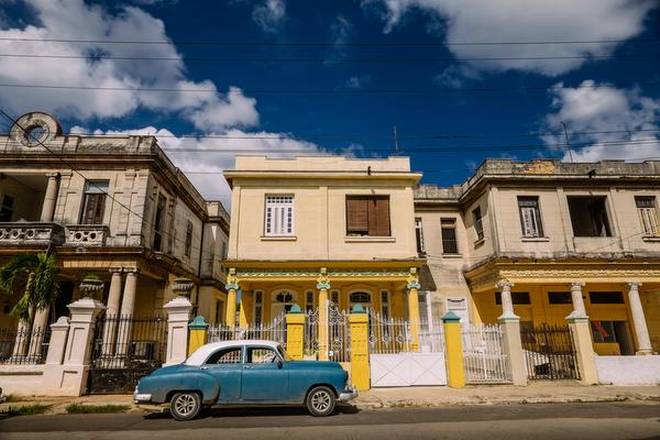“She would dive into the deepest of wells and swim like a keluthi (a type of fish),” — These are my mother’s words about my grandmother. My grandmother died when I was very young and I hardly knew her. As we drove through her village in interior Madurai district one afternoon, I sat up and scoured the streets — we were just passing by and had no time for a pit-stop. But I itched to walk the dusty streets and perhaps peek into a well or two, visualise her lean form taking a dive. This feeling — one that’s a mix of curiosity, love, and a primal yearning driven by our genes — forms the core of genealogy travel. Men and women journey far and wide in search of their roots; some go to any extent to find that missing link in their family tree, finding camaraderie and new adventures in the process.
Cycle rickshaw drivers are a source of information | Photo Credit: Getty Images/iStockphoto
Asher Charles Wesley decided to take off to Sri Lanka one day to learn about his grandfather. The 31-year-old, who’s from Coimbatore and works in the UK, says his paternal grandfather died long before he was born. “I decided to make an impromptu journey to find out more about him,” he says. Armed with sparse information — “The only clue my father gave me was that my grandfather’s shop was somewhere between the railway station and Hemachandra Transport Corporation in Talawakelle in Central Province, Sri Lanka,” he adds.
- Genealogy tourism refers to travel that people undertake to places of their ancestral origin.
- It is particularly popular in countries that have experienced mass emigration.
- Also called roots tourism, the trend has been picked up by travel companies, with some offering specialised packages.
- Some people also club vacations with a roots trip, planning everything, such as going through digital historical records, months in advance.
Asher walked, with his camera in hand, from one shop to another in the small town. Several conversations with random strangers, and phone calls later, he sat face-to-face with one Mrs N, who knew his grandfather well and had frequented his shop. This was the moment Asher was waiting for. Mrs N told him that his grandfather “had a beard in his last days, was extremely calm, and helped a lot of people”. Asher instantly teared up. “This unknown character, whom I had never met, suddenly felt like a hero,” he says. He tried to locate his grave in a church cemetery nearby, with no success.
Canadian David Blake-Knox too travelled in search of his grandmother’s grave. He came to Chennai last year with his wife Eva for the purpose. “My grandmother had died of malaria in Madras after my father was born,” says the 61-year-old over phone from Vancouver. Interestingly, the couple had gone to Yercaud earlier that year to find his grandfather’s grave. Their search was physically demanding — David remembers going through several tombstones at cemeteries before finally finding what he was looking for.
In Chennai, he was in for a lot more work. He went through numerous sites and church records. But in the end, he had to go back without finding his grandmother’s grave. But David vows to continue his search. “I don’t know the answer to my search; but I do know that it’s not in India,” he feels. This was not the first time that David, who retired from military service, had set out on gene travel. He has travelled to Ireland, England, and Scotland to “find the missing pieces of my family about which I didn’t know 100%”.
Mary Ann Dewees Moffett visits her 11th great grandfather’s grave in Amsterdam | Photo Credit: By arrangement
According to Megan Smolenyak Smolenyak, a US-based genealogical adventurer and storyteller, genealogy travel has been growing rapidly over the last 15 years “thanks to online databases, social networking, DNA, TV shows, and so forth.” A gene traveller herself, Megan has visited Ireland, Slovakia, Poland, and Ukraine in search of her roots. Some people do extreme things to find their roots. Megan has met people who’ve “got themselves locked into libraries or archives overnight, or clambered over high walls in order to get to an old family cemetery”.
Megan has worked with travel agencies that organise genealogical adventures. “I do the research up-front and the trip is orchestrated around the family’s heritage,” she says. Right now, she’s helping identify “American soldiers who are still unaccounted for from the First World War, Second World War, the Korean War, and the Vietnam war.” Megan has done the family trees of several high-profile individuals — she has researched on Barack and Michelle Obama’s roots. She revealed the real Annie Moore, the first-ever immigrant to arrive from Cork, Ireland, at Ellis Island in New York, which was America’s main port of entry.
She adds, “Genealogy is ultimately about connection. It’s about wanting to belong.” Apart from the “thrill of the hunt and the fun of learning about all sorts of quirky pockets of history,” it ultimately comes down to getting to know our ancestors. Megan adds: “Understanding what they were able to endure should give us hope and strength. Their blood runs in your veins, and that means you’re resilient, too. They made it. So will you.”








